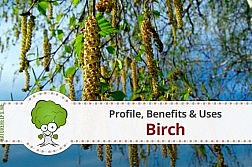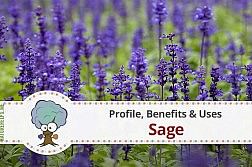Echinacea comes with a whole slew of health benefits that can improve your overall wellness and boost your body’s functions and systems. Eventually, it came to be used for various other illnesses and infections, as well as a general immune system booster.
Echinacea includes a group of herbaceous, flowering plants that are highly prized for their medicinal and healthy properties. There are nine main species of the Echinacea genus, and they are commonly called coneflowers, such as the Pale Purple Coneflower or the Tennessee Coneflower. The flowers themselves are beautiful, and some varieties can grow up to 4 feet in height. Their colorful heads are easy to distinguish, and you can commonly find them in eastern and central North America, the regions they are native to. It is commonly classified as an herb, although many other people think of it as a flower; much of this disparity comes from the different ways in which it can be used. The different strains of echinacea also contain different active chemicals, including a variety of phenolic compounds like cichoric acid, caftaric acid, echinacoside, and various other polysaccharides and alkylamides.
How Echinacea Works?
No single chemical has been found responsible for echinacea’s ability to stimulate the immune system; in fact, whole-plant extracts seem to be more effective than those containing an isolated compound. Certain polysaccharides, flavonoids, essential oils, caffeic acid derivatives, isobutylamides, and cichoric acid all may play a role in producing echinacea’s effects.
Extracts from both the root and the flowering tops increase the number of white blood cells and activate macrophages, specialized cells that patrol the bloodstream in search of invading viruses, bacteria, or other foreign particles to ingest. Echinacea extracts also increase levels of properdin, a protein that battles bacteria and viruses.
Echinacea Benefits for Health
The tea is a helpful remedy to have on hand as a wash if you have problems in the mouth, including pyorrhea, canker sores, gingivitis or even mouth ulcers.
You may use the tea or the tincture in water to rinse your mouth with, to aid these issues. It is also an analgesic and is quite effective when used on burns.
As echinacea has a strong antibiotic action, it may be used as a topical disinfectant to treat cuts, septic sores, varicose ulcers of the leg or any type of skin wound or infection.
It also comes as a lotion or echinacea cream made to use on the skin. There are benefits of echinacea as an effective treatment to aid eczema symptoms and psoriasis.
It will also assist slow healing wounds to heal more quickly, and is known to aid bee stings and insect bites. It is also useful to help acne, and slow healing skin infections such as boils.
Echinacea to Improve Immune System. Perhaps the most common usage of echinacea relates to its impact on the immune system. Much of this is derived from the chemical constituents within echinacea that can directly affect the chemical processes of the immune system. Studies have shown that regular intake of echinacea can reduce your chances of catching a cold by 50% and if you are already ill, taking echinacea can help reduce the duration of your cold by 1.4 days. For this reason, echinacea is used by millions of people every year when they are trying to eliminate the annoying symptoms of the common cold.
Echinacea to Prevent Cancer. It has been connected to preventing cancer because it stimulates the body’s immune system to eliminate cancerous cells. Although echinacea is not necessarily considered an antioxidant, it can certainly help eliminate free radicals by stimulating the proper immune system cells, like T cells, thereby helping to prevent the development of cancer.
Echinacea is known to be particularly effective in speeding the recovery process of a number of common illnesses. Some illnesses against which echinacea supplements may be particularly effective include:
- Urinary tract infection
- Sore throat pain
- Enlarged lymph glands
- Upper respiratory infection
- Enlarged prostate
- Vaginal yeast infections
- Bronchitis
- Hay fever
- Sinusitis
- Ear infections
- Gingivitis
- Canker sores
Contraindications in Usage of Echinacea
Anyone who has an autoimmune disorder such as multiple sclerosis or lupus should not use echinacea because their ailments might be aggravated by further boosting their immune systems.
People who are HIV positive are advised not to use the herb because the increase in white blood cells might cause that virus to become more powerful as well.
Otherwise, echinacea is generally considered safe for all people, but be sure to check with your doctor before taking it if you are pregnant, trying to get pregnant, nursing or taking medication for a health problem. You never know how different drugs might interact with herbal remedies, and you don’t want to end up sicker because you combined medications with herbs without clearing it with your doctor.
People who are allergic to ragweed or other plants in the aster family may be sensitive to echinacea as well.
People with asthma or atopy may be more likely to have an allergic reaction when taking echinacea.




